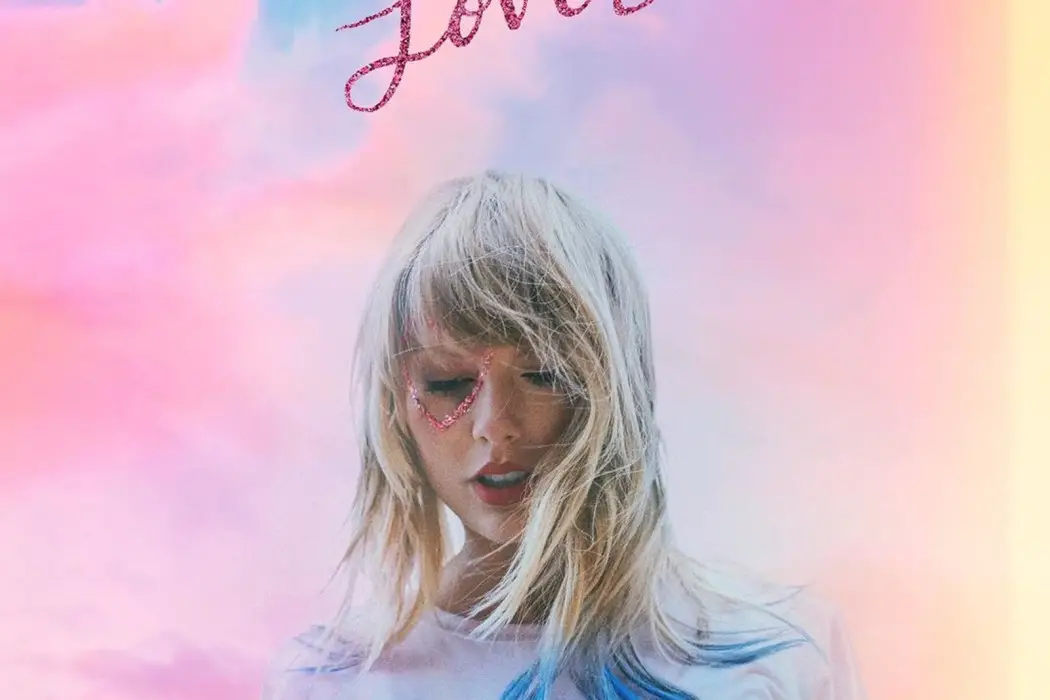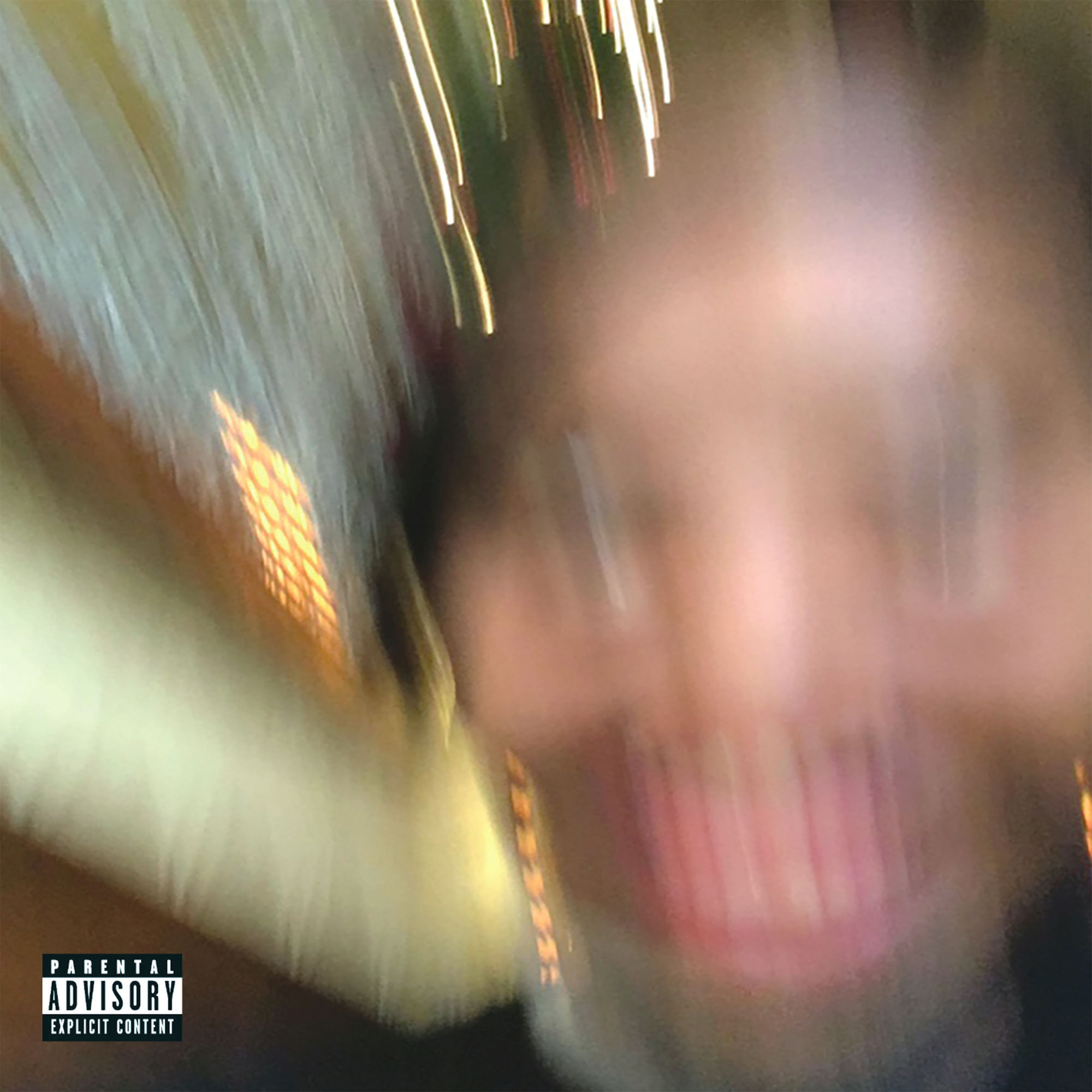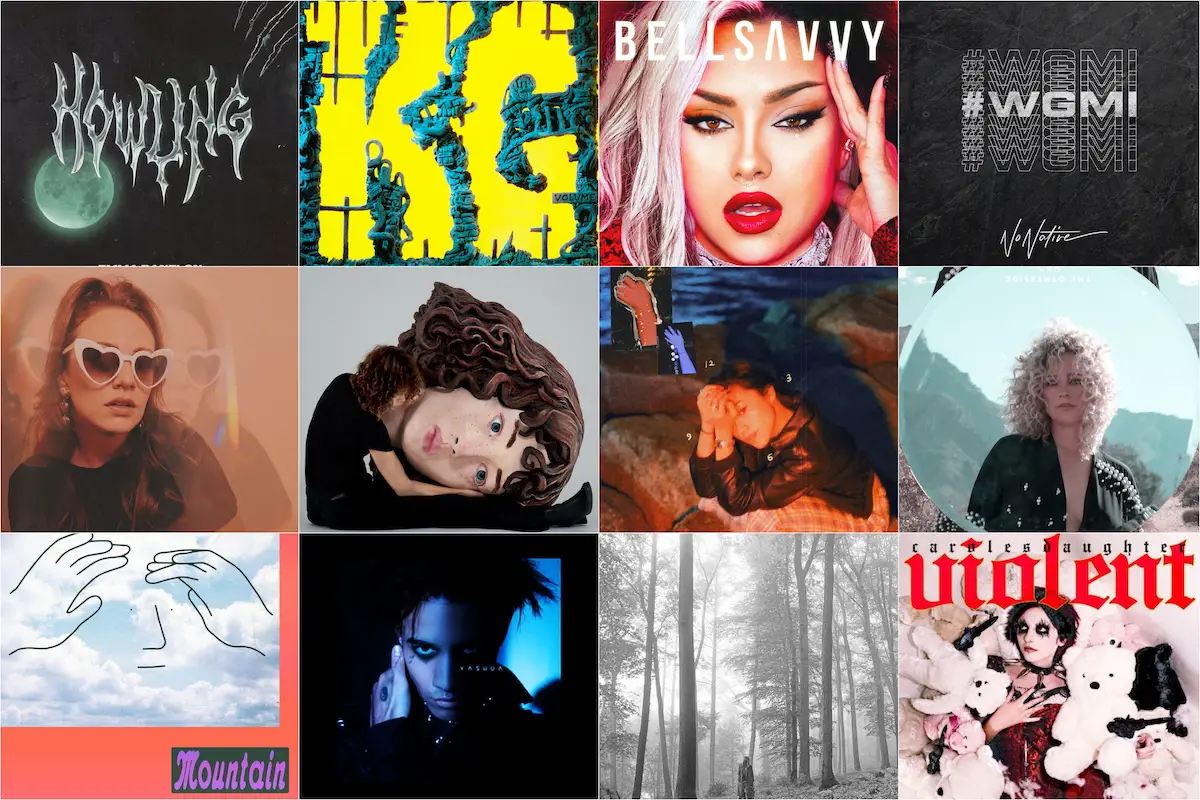Atwood Magazine’s writers discuss the warmth, cheer, and pastel hues of Taylor Swift’s buoyant seventh album Lover, a lengthy return to form for the pop artist and the logical next step in her style and sound.
Featured here are writers Josh Weiner, Madison Vettorino, Melanie Lustig, Jack Mason-Brase, Alicia Bugallo, Francesca Rose, Nicole Almeida, and James Crowley.
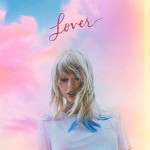
— —
For a baseline, what was your relationship to Taylor Swift’s music like before Lover?
Josh Weiner: I’ve been listening to Taylor Swift since high school, starting with 2008’s Fearless, which came out when I was in 11th grade. Over the ensuing 10+ years, I’ve continued to actively listen to Taylor Swift and have enjoyed all of her releases throughout that period. Seeing her put on a fantastic show at the MetLife Stadium last year as part of the Reputation Tour has only increased my enthusiasm for her catalogue. I’m happy to see her maintain the momentum in 2019 with Lover.
Madison Vettorino: I still remember the first Taylor Swift song I played on repeat. It was “Forever and Always,” from Swift’s 2008 album “Fearless.” Over ten years later, I’m still as enchanted by her music as I was the first day I heard one of her songs. Listening to Taylor Swift was something like a rite of passage back in middle school when I first became a fan. I grew up buying her albums on Vinyl to play on my cotton-candy blue record player (very 2015!), waiting hours to see her perform live in the Plaza in New York, and pining over middle school crushes with her love songs blasting from my iPod Nano as I wrote in my journal. My parents got me “Speak Now” tour tickets for my 13th birthday, and I still maintain that has been my favorite birthday gift yet (I’m 21 now).
Melanie Lustig: I have always been a Taylor Swift fan, dating back to middle school when my friends and I listened to “Our Song” over and over again on our iPods, and talked about all of the classmates we thought were cute. (Like, totally.) Since then, I have enjoyed Swift’s transition from country music to pop music, and find myself listening to hit songs from both her Red and 1989 albums regularly. She is the kind of artist that thinks about her albums from start to finish, and every lyric she writes, even when it’s not overly poetic, has meaning. I’ve always appreciated her sound and although reputation had a generally harsh vibe that I couldn’t quite get behind, I was still excited for her next endeavor.
Jack Mason-Brase: Oh geez, how does one even begin to unpack the musical importance of Ms. Swift in my life; you know the line in “Miss Americana & the Heartbreak Prince,” “it’s you and me, that’s my whole world?” That line is undoubtedly about me and Taylor circa 2009 when her words were the axis my world turned on. That said, Reputation was just kind of fine for me; I love pastel pop a lot more than darker cityscape pop, so Reputation wasn’t really a playground designed for me.
Alicia Bugallo: The first Taylor Swift song I came across was “Love Story”, in 2008. I was only eleven at the time, and at that age your favourite artists become much more than just someone who makes cool music; she was my idol and I would religiously listen to every single one of her songs. She was my favourite artist during my teens, I was absolutely obsessed with her. However, when she released reputation I just didn’t buy into it, it seemed like an attempt to fit into the new anti-pop scene that was becoming popular, it just didn’t feel authentic. It left me wondering whether she would return to her pop bangers.
Francesca Rose: I like her but I’m not a dedicated fan and really didn’t like Reputation. During “Love Story” era, I was at school and considered my taste in music too cool for that fairytale mushiness and then Speak Now and Red I’d listen to enjoyably in secret. That was stupid because there should never be shame but I guess overall my relationship to Taylor Swift’s music has developed to be more of intrigue than anything else.
Nicole Almeida: I liked her as much as any other person as I was growing up, “Love Story” was a huge moment in my pre-teen life, but I kind of lost interest after Fearless. As 1989 conquered the world, I was pushed by friends to listen to the album and fell in love with it. It’s still my favourite Taylor Swift album, even though I subsequently came to love reputation as well. As much as I like her recent work (and was absolutely floored by her performance and stage presence at the reputation tour) I’m not invested in her as a celebrity or figure in general. It’s more about the music for me.
James Crowley: I’m pretty lukewarm on everything prior to 1989. I’ve tended to enjoy some of her singles (“You Belong With Me”, “We Are Never Getting Back Together”, and “Fifteen” come to mind), but I was rarely blown away by Swift prior to 1989. I have gone back and listened to a little Red following Pitchfork’s glowing review, but I haven’t gotten a chance to properly sink my teeth into it. All that being said, 1989 is probably Swift’s best album and has had the largest cultural impact, but I really think reputation was somewhat underrated. I’ve found that it has a lot of replay value, and I really enjoy Swift’s heel turn. It also has some great love songs on it.

How did we get from the cynical and dark (albeit not much) reputation to the infatuated, pastel-coloured Lover?
Josh: Taylor must have sobered up and resolved her past rivalries. reputation was littered with references to consuming alcohol, which was relatively alarming, as (unlike a good deal of other celebrities) Swift has rarely been spotted publically in an intoxicated state. Some of the “bad blood” that she had sung about in 2015 also still hadn’t quite been fully resolved by 2017. Now that another two years have passed, though, it seems as though the worst is behind us, and the result is Swift’s cheeriest album since 2012’s Red.
Madison: This might just be the easiest question to answer! Taylor fell in love. Someone once told me that, “When you’re in love, everything is beautiful.” This album absolutely confirms this theory. Lover isn’t entirely rooted in fantasy – though a fair amount of it is, which is perpetuated through the romantic colors, and heart-laden imagery that has characterized the era – but throughout even the pieces with a more political undertone like “The Man,” Swift maintains an optimistic outlook. On reputation, Swift sang, “All my flower grew back as thorns,” but I think Lover challenges that. Taylor has embarked on yet another glorious era of her life, this one considerably more dreamy and decadent than the last. With Lover, Swift’s hypothetical flowers haven’t grown back as thorns – they’ve grown back as even more flowers. This, in my opinion, is because she is absolutely enamored.
Jack: Taylor, in a lot of ways, was playing with the media’s characterization of her; she’s said she came up with the name Reputation before any songs were even written, so that makes it her first record to begin with a concept rather than having the songs reveal the record’s concept to her. I think choosing what to write about helped her stay in that darker lane, but ultimately Swift is a colorful pastel romantic creature; without a concept to guide her she gravitates back towards the loves glitter pop and love songs she’s known for.
Alicia: I think with reputation she tried to experiment with a different sound, but didn’t really find her feet, and ended up making an album that sounded unauthentic, wasn’t particularly outstanding, and certainly didn’t live up to the standards set in hook-laden 1989. I don’t see it Lover as a progression from her previous album, but rather as a return to her signature sound, with reputation being just an interesting venture on the way.
Francesca: That’s easy: MARKETING. Taylor picked a concept and stuck with it, blowing it up to easily recognisable proportions. I don’t follow her/ her personal life deeply enough to know the backstories etc but having such a big (and positive) contrast works in gaining attention and clearly distinguishing the new Taylor Swift chapter from the previous one.
Nicole: Goodness, I don’t know, but I really wish she was still petty and lashing out at people in her songs. As much as reputation was marketed as the album in which she was going to clap back at Kanye West, Kim Kardashian, and every single other celebrity who ever got into somewhat of an uncomfortable situation with her, I’ve always thought it was mostly an album about love. To me reputation was about how love helped her find her strength again, and since she’s still with the same person who the love songs in reputation are allegedly about, Lover is just her basking in the glow of this relationship. I love that she’s happy, but I don’t think happiness and love make for interesting story-telling that is supposed to keep us gripped for 18 songs
James: This was probably just a rumor or fan theory, but there was some speculation that this was the album that Swift was planning on releasing before taking a hard shift with reputation. While this may just be speculation, it does make some sense. Lover definitely seems more like the next step after 1989 than reputation does. Reputation will probably prove to be something of an anomaly in Swift’s catalog, but Lover seems like a more refined take on the sound she discovered with 1989. While there’s certainly more bubblegum in Lover, it does feel like someone who’s trying to present a more mature and interesting pop record than any of her previous work has.
What was your initial reaction to the album upon first listen?
Josh: I was quite happy with it. Once I concluded my listen with “Daylight,” I could immediately think of tracks which had stood out as some of my favorites and felt as though the album as a whole had emerged as another successful effort for Swift and her creative team.
Madison: I listened to Lover from cover to cover starting midnight the day it was released. From the first few songs, I knew I’d be hooked. Lover is a complete 180 from reputation and even 1989 in some ways, but feels familiar in others. I think Lover will resonate more with fans who have following Swift since the beginning. Even though it’s not country pop, thematically it is far more similar to her first few albums than any of her recents. On a different note, when I approach Swift’s music now, I always look at it through the lens of sonic cohesiveness. Back in 2015, I remember reading about how Swift felt ‘Red’ wasn’t very sonically cohesive – which admittedly, it wasn’t, but I didn’t think that was a weakness for it – and she used sonic cohesiveness as a guiding principle for the production of 1989 and also reputation. I think Lover feels very sonically cohesive, like pages out of the same story book for sure.
Melanie: Upon first listen, Lover combines Swift’s ability to channel her country girl background who has finally found love, with the new sound she developed during her 1989 album. I liked the balance of occasional celebratory songs like “Paper Rings” and “I Think He Knows” juxtaposed with slower ballads like Lover that are in no way out of place. She is taking on issues about which she is passionate with songs like “You Need to Calm Down” which is pro-LGBTQ+ as well as “The Man” which calls out the sexist music industry that she has publicly been fighting. The album feels coherent from start to finish, and personal, with only a couple of songs I wouldn’t like to listen to several times.
Jack: I go into Taylor records expecting them to take a little bit of time to grow on me while having a couple of songs hit me hard; I was wildly happy about Lover because I was hit hard, like, every other song. It’s been a few days and I’m still feeling that hit thoroughly, but I also recognize I’m coming in with a lot of genre bias because this is the exact tone of pop that I love. Outside the realms of genre, though, it’s clear the production value has gone up quite a bit; her connection to Antonoff has really found its place to thrive.
Alicia: I was expecting it to be an album full of brilliant songwriting, pop hits and beguiling melodies and, for me, it hasn’t fulfilled my expectations. Nevertheless, I believe it is a step in the right direction, and really appreciate her going back to a sound that feels way more genuine. I personally think there is a lack of balance; it’s just too much, too cheesy. It sounds like it’s been written by a unicorn on steroids, which is fine for one song or two, but eighteen? I find that a bit hard to digest.
Francesca: My initial reaction was “oh.” As in, “Oh. Is this it?” I personally didn’t really find that much originality in the songs. All the hype around it is purely because it’s Taylor Swift and anything she does will be hyped.
Nicole: Frankly, I was bored. I was surprised at how forgettable I thought it was after the last song ended, even though I did enjoy some songs on the album. I think its length is its biggest hinderance – as much as I wanted to listen to the album again to inspect it closely right after my first listen, the idea of having to go through 18 songs again really put me off. It’s a huge investment of time and energy. And so I only listened again while answering questions for this roundup.
James: I thoroughly enjoyed it. Sonically, this is my favorite Taylor Swift record. The instrumentals for the tracks are rich and atmospheric in a way that is distinguishable from her past records. It really blends more genre lines than any of her work prior, and the lyrics are some of her best. She’s more explicit in showing that she drinks and is a sexual being, where so much of her prior work seemed to paint her as a teetotaling virgin, and that makes her more relatable. The St. Vincent co-written “Cruel Summer” is one of Swift’s best and features her actually showing emotion with her voice, which her older albums lacked. Also, there are a handful of moments like “I Forgot You Existed” or “The Man” that hearken back Swift’s reputation heel turn or 1989’s emo-epics “Bad Blood” and “Blank Space.”
All that being said, sometimes Swift’s instrumentals lack variation. Many tracks can often bleed into each other, and it’s hard to remember what you’re listening to.
Diving deeper, what are Lover’s biggest strengths and weaknesses?
Josh: The production here is consistently remarkable — I’ll go with that as the biggest strength of the album. Not sure what the album’s “biggest weakness” may be, as its flaws are mostly relatively minor.
Madison: Swift is known for her “Easter Eggs” – that is, the clues hidden inside of songs or music videos that hint at who or what the song is about or even what inspired it. It’s like a treasure hunt. Swift’s dedication, in my opinion, to sneaking clever little details into her work is largely responsible for making her music feel so candid and personal. With Lover, Swift maintains transparency with her fans, incorporating those Easter Eggs that her fans love to stumble across into many if not all of the tracks. Her songwriting skills also continue to resonate. While I’m a big believer that there is always, always room for improvement, I’m not sure what weaknesses I can deduct Lover has. Maybe that it took so long to be released. It feels like we’ve been waiting forever.
Jack: Her lyricism, her vulnerability, her productions, her playfulness in one verse and deep sincerity in the next; these are the strengths that strike me as most valuable on this record. On Reputation the productions were grander than 1989 but sometimes in ways that felt distracting; on Lover they always feel complementary to the lyrics, even when they try some weirder and cooler things (“Death by a Thousand Cuts”). Like everyone else here, it’s tough to find some really big weaknesses, but I can narrow in on a couple small ones; when every song feels like it could be a single the ones that don’t really stand out; “False God” and “It’s Nice to Have a Friend” stand out to me as the weaker songs not because they’re bad (I really like the concept and verses for “False God”) but because they feel like they’re destined to be deep cuts as time passes.
Nicole: The biggest strength is the immaculate pairing of Jack Antonoff and Taylor Swift. As bored as I am by all the love songs, she’s a formidable songwriter and storyteller, and her songs combined with Antonoff’s production result in the best, most confident, and original version of Taylor Swift. He’s the producer that brings out the best side of Swift’s songs. Another strength is that throughout Lover you can hear Swift harking back at her past eras (“You Need to Calm Down” and “I Forgot That You Existed” could be lost reputation tracks, “The Archer” brings back the breathy vocals and ‘80s tinged synthesisers of 1989, “Lover” and “Soon You’ll Get Better” nods at her country roots). While in my opinion this is can be somewhat lousy if not done properly, hardcore Swift fans will appreciate the references to her past discography.
As mentioned before, Lover’s main weakness is that it’s too damn long. I am a true fan of long(er) albums and songs that aren’t scared of hitting the 8 or 10-minute mark, but after the off-putting first two lead singles, if I didn’t write about music on a daily basis I wouldn’t have listened to the album. It’s hard for people to listen to 10-track albums in the playlist-driven music consumption world of today, asking people to indulge in an 18-track album is a little self-absorbed and, to me, seems like a record label strategy so Swift occupies more slots in the charts than anything else. Something else that I think makes the album weak is that while Swift self-references the sounds she’s dabbled in throughout the record, I can’t see any real sonic growth or development in Lover. To me, it’s a mixture of everything she’s ever done, but it doesn’t get further than that, there’s nothing new to consume.
James: I think it’s great that Swift is using her platform to endorse political candidates, policies, and social causes she supports. I’m also really glad that they also align with my political beliefs. That being said, “You Need to Calm Down” and “The Man” both feel cringey and forced. Swift sounds like she’s trying too hard to compensate for her previous silence and has overshot her aim. A line like “Shade never made anybody less gay” sounds like something a middle school student would say, not a line that would rouse an audience to seek political action. “The Man” is similar, despite being one of the best songs on the album. Swift isn’t breaking any new ground in demonstrating the differences between the ways men and women are portrayed in the media. The delivery and instrumental save the song from being a boring track with obvious metaphors. I also understand that this is all super ironic coming from a straight white guy.
The record stands out as Swift’s most mature. This is a record that has versatile tracks that can be played on a night out or having a casual brunch by the pool. The records strongest moments also explores darkness in a much more realistic way than reputation had. “The Archer” is a very honest depiction of depression, desperation, and unsure futures. “All of my heroes die all alone” is the best emo lyric of the year, and it’s on a pop record. “Paper Rings” is an excellent love song that shows both love’s strength and unconditional nature. “London Boy” is also a sweet ode to international romance.
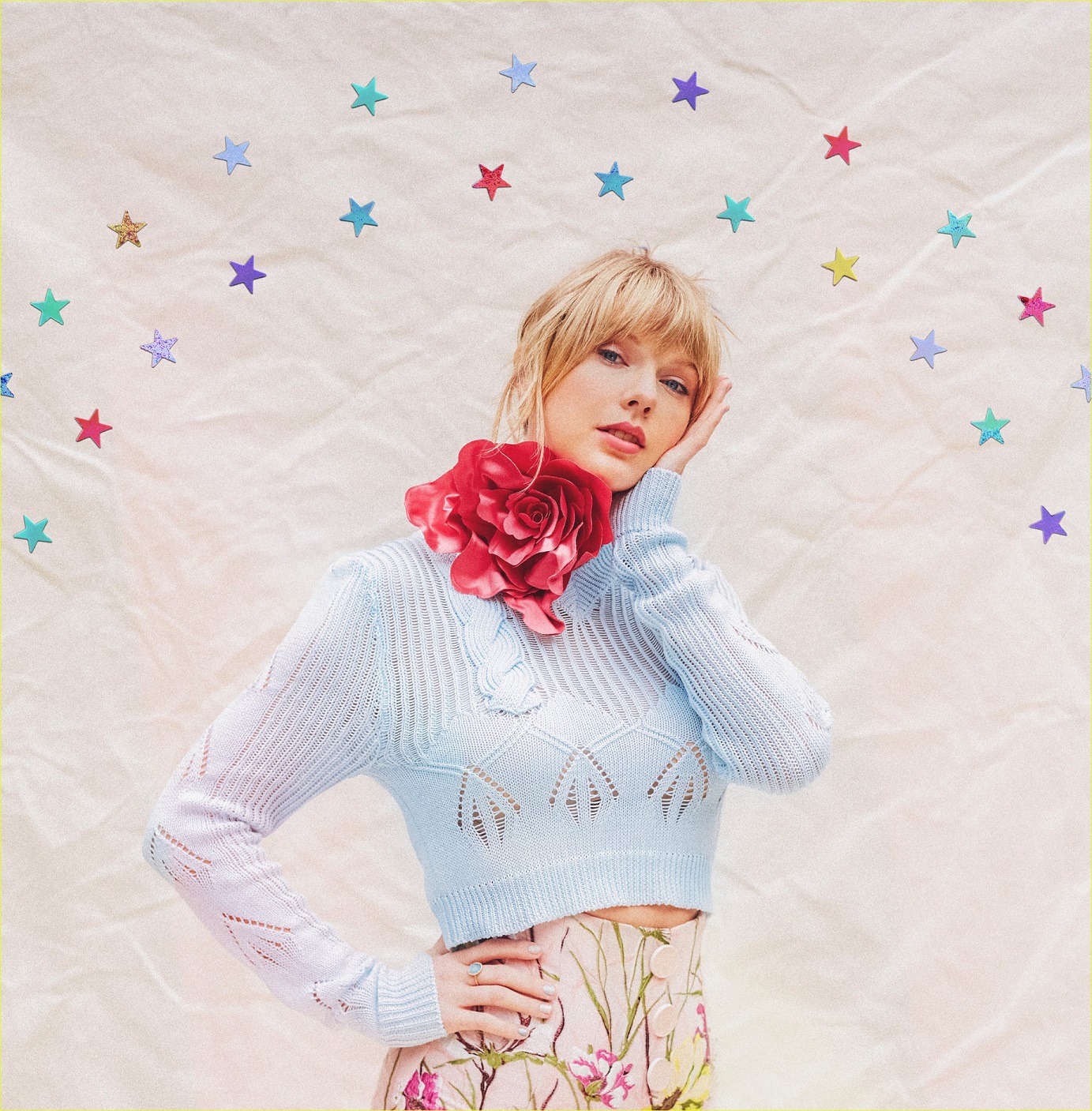
Antonoff and Swift: Match made in heaven or a duo you’re tired of hearing from?
Josh: I don’t see anything to gripe about. The production on this album is plainly gorgeous, and Taylor Swift and Jack Antonoff continue to deliver strong product together. Now that hopes for a follow-up fun. album appear all but obsolete, the band’s lead guitarist and drummer might as well stay occupied by some other means– making beats for the decade’s defining pop superstar seems a perfectly fine alternative.
Madison: Swift wrote “Speak Now” entirely on her own. That’s a fact that still meanders into my head every time I listen to one of the songs on that album. Antonoff and Swift have produced a variety of outstanding tracks as collaborators, and I do think their abilities play off of each other extremely well. At the same time, I’ll always have a special place in my heart for “Speak Now” and its unmanufactured honesty that I think pop music sometimes lacks.
Jack: Match made in heaven for me, or perhaps grown in heaven as I’m much more excited about their collaborations on this record than on the one prior. At this point I have a lot of faith in the two of them and I’m excited to see how they continue to grow together; that said, the best Antonoff partner is still Lorde, but that’s a conversation for another time.
Alicia: In all honesty, I have had enough of it. I am not a big fan of the production, it just feels outdated and boring. The songwriting? It’s good, but not good enough for someone who is meant to be one of the biggest pop stars in the world. For me, her and Max Martin were a match made in heaven, and I really hope the duo comes back.
Nicole: See answer above. I will say though, that while I love what Antonoff and Swift create, I’m still a bigger fan of his work with Lorde and St. Vincent because I think they take more risks together. But still, I wouldn’t want Taylor Swift to make music with any other producer ever again if not Jack Antonoff.
James: Do we complain about Mick and Keith? Kanye and Jay-Z? Simon and Garfunkel? They’re doing swell.
On an 18-track album there are bound to be fillers. Which songs could you do without?
Josh: Well, I would dispute that initial premise, but more importantly, I don’t think there are any bad songs on this album. Plus, even though 18 tracks may seem like a lot, the songs themselves aren’t all that long for the most part (no “Dear Johns” in sight here) and the album’s total running time is only about 60 minutes, which I consider perfectly digestible.
Madison: It’s hard to declare that the album would read the same if even one song wasn’t on it. When I first heard “I Forgot That You Existed,” I thought it felt sort of like a filler – which was strange, because it’s the album’s opening track. Then I realized that it sets the stage for the rest of the story to unfold. It is crucial to the rest of Swift’s character development as detailed on Lover. The rest of the songs feel entirely essential – well, with the exception of “It’s Nice To Have a Friend.” Swift’s “22” from Red was also an ode to her friendships, but it far more catchy and digestible. “It’s Nice To Have A Friend” is a beautiful sentiment, but a song I could live without. Maybe that’s because Swift gave us so many other absolute gems on this album that this one just doesn’t feel as special as some of Lover’s other tracks.
Jack: Is “It’s Nice to Have a Friend” supposed to work as a palate cleanser before “Daylight?” Is it supposed to wrap up the high school imagery used throughout the record? I’m definitely confused about why it sits at the end of this record, right before the finale track, but even though it isn’t an essential part of this record for me I’m still happy it’s there. The little odd child. It leaves me wondering if the meaning behind it is more significant to Taylor than we know. Oh, and “ME!” is not my particular jam, that one’s always a skip for me.
Alicia: I am not a big fan of “The Archer” (and for the record, I certainly don’t think it’s single material). The whole song I was waiting for something to happen, and then that was it, the song was over. It feels like an interlude, there’s nothing remarkable about it. Also, “London Boy”. What even is that? The lyricism is appalling, it feels like a nursery rhyme. It actually seems like a parody of cheesy love songs. Except it’s not.
Francesca: Yesss, Alicia. Right from the start, “London Boy” made me cringe so much and the more I think about the lyrics the more I continue to cringe. ‘I enjoy walking Camden Market in the afternoon’- Camden Market being the cool place to walk around when I was like 15 years old but now feel really meh. And: ‘And now I love high tea, stories from uni, and the West End‘ There are just too many stereotypes in this song, for anyone but especially somebody as musically established as Taylor Swift.
Also, “The Man”.
Nicole: A lot of them. “ME!” should not exist, “You Need to Calm Down” has noble intentions but fails on every other front. “Paper Rings” is “ME!”’s long-lost cousin so it can go as well (sorry, Mitch). “Death by a Thousand Cuts” is a total filler for me, as much as I too loved the Netflix movie Someone Great which supposedly inspired it. I feel like “London Boy” is too much of a recycling of reputation, and that Idris Elba quote at the start is random and a total reach, it serves absolutely no purpose but to create an extra three Buzzfeed articles about Taylor Swift and Idris Elba’s friendship. I think “Afterglow” and “Daylight”are good songs, but pretty forgettable.
James: “Afterglow” and “False God” are mostly forgettable. The only song that’s actively bad is “Me!” The song is weak and meaningless. Had it been a standalone single like her Zayn Malik collaboration, it wouldn’t really warrant this much disappointment, but it’s an obnoxious, childish track in an otherwise mature and enjoyable record.
If you could only listen to one song from Lover on repeat, what would it be? Why?
Josh: Already, the song that has claimed that status for me has been “Miss Americana & the Heartbreak Prince.” The creative title caught my attention, and the song’s shining production and lyrical construction — assisted by mainstream radio’s omnipresent Joel Little — has maintained it.
Madison: “Cornelia Street.” Gosh. When I first listened to the album, I thought “Cruel Summer” was going to be the showstopper. Then I got to track nine. It is one of those rare songs that sounds exactly like the emotion the artist is singing about. “Cornelia Street” somehow balances being cinematic and intimate. In a lot of ways, this song feels like the natural sequel to “Delicate.” “Delicate” is that initial spark when a relationship begins and you think, “Oh, this could be something. It’s fragile, but let’s see where it goes.” Whereas “Cornelia Street” tells a different, later story. It is about coming to terms with the realization that, when you fall in love, you have a lot to lose. It tells the tale of the agreement we make when we love: that our relationship to certain places will forever be altered because they were significant to the connection we had with one person. I think this song is so special because we’ve all felt like this before: like something is so inherent to our relationship with another person that, if we lost them and they were no longer in our life, our connection to the place or thing would entirely be destroyed. Because it’s more than a place. It’s more than a street. For Swift, going back to Cornelia Street if her and Alwyn (the person the song is assumedly about) ended would be like seeing his ghost. It would be reliving their reel of memories created there, and that, for Swift, would be too painful.
Jack: “Cruel Summer” is just, wow, talk about a mood. Even just the vocoder following the verse’s lines saying “you’re right, I want it” is enough to take me somewhere. That said, this answer will change by next Friday I’m sure.
Alicia: “You Need To Calm Down”. It is exactly what I was expecting from her new music. I love the sass in it and its brilliant hooks, and the chorus just makes me want to jump around the room singing into a hairbrush. Even if I am not a big fan of the rest of the album, this song really does it for me, and I wish the rest of the album sounded a bit more like it. I also think “Afterglow” deserves a mention; it resembles the sound of 1989, probably my favourite Taylor Swift era.
Francesca: “Cruel Summer” which, I agree, is a MOOD. “Need To Calm Down” is how I expected the album to be: Catchy, straight-forward pop, coated enthusiastically with pastels. “Paper Rings” has a similar effect but on first listen I wasn’t like ‘I need to listen to this again!” Lover is one of those things that I’ll likely consume in one go when I have a craving for it and then songs will probably grow for me over time.
Nicole: “The Archer”. It brings together everything I love about Taylor Swift’s music: beautiful lyrics and imagery, incredible storytelling, and the song’s production is interesting but just simple enough to make the story shine. It’s one of the most genuine songs on the album for me, and if anything I’m glad Lover exists because I got to listen to this song in particular.
James: I’m going to say “The Archer,” because I’ve been listening to it a lot. It’s a meaningful and thoughtful pop song, that could just as easily be played with just an acoustic guitar and still be great. That being said, “Cornelia Street”, “Cruel Summer”, and “Paper Rings” are all contenders though.
Do you see any parallels between Lover and prior songs or albums? If so, which? And if not, what in particular feels like a diversion from her previous narrative?
Josh: As I explained earlier, the fact that Swift has brushed away some of the bitterness that briefly entered her life and caused her to feel as though “my reputation has never been worse” (even if this declaration seemed somewhat exaggerated to me) makes Lover a clear thematic diversion from Reputation. But the album’s sonic structure parallels that of her previous records in the sense that it features a good chunk of “pop rock” tracks of the type longtime collaborator Jack Antonoff specializes in, while also making room for a handful of softer, acoustic tracks that harken back to her country music origins (“Soon You’ll Get Better,” her debut collaboration with the Dixie Chicks, being the strongest example of this formula).
Jack: The reference to love being golden on “Daylight” is a clear parallel to the theme of gold that threads itself through reputation. The color blue is also referenced six times on Lover, a parallel to “Delicate” and probably also a consistent reference to one specific muse (the man she wrote “Delicate” about).
Madison: Totally! Lover has about a million references to the color blue. In the past, Swift had an entire album called “Red.” She seems to have a fascination with colors and the associations that they carry. I think that this is not only very clever, but also shows a lot of character development. Red is a very passionate color, and by contrast blue is a very calm one. To me, the references the color blue in Lover indicate a sort of security and calm that has come with age, and with finding security in love.
Nicole: Love is a staple in the Taylor Swift discography so that might be the most obvious thematic one. Sonically, I connected the dots in the strengths/weaknesses question. I’m surprised by the number of pop culture references she’s making in the album, though, nodding at Drake and Leonardo di Caprio, and this feels slightly new to me. I mentioned before that I think reputation is an album about love above all else, but it had a better balance between things-that-aren’t-Joe-Alwyn-related and odes to his blue eyes, so this intense focus on love and only one relationship is new for her. I’m trying to decode Lover as best as I can, but I still think 90% of it, at least, is about this guy and honestly I’m confused because to me the most interesting thing about him is his (very intimate) scene with Emma Stone in The Favourite.
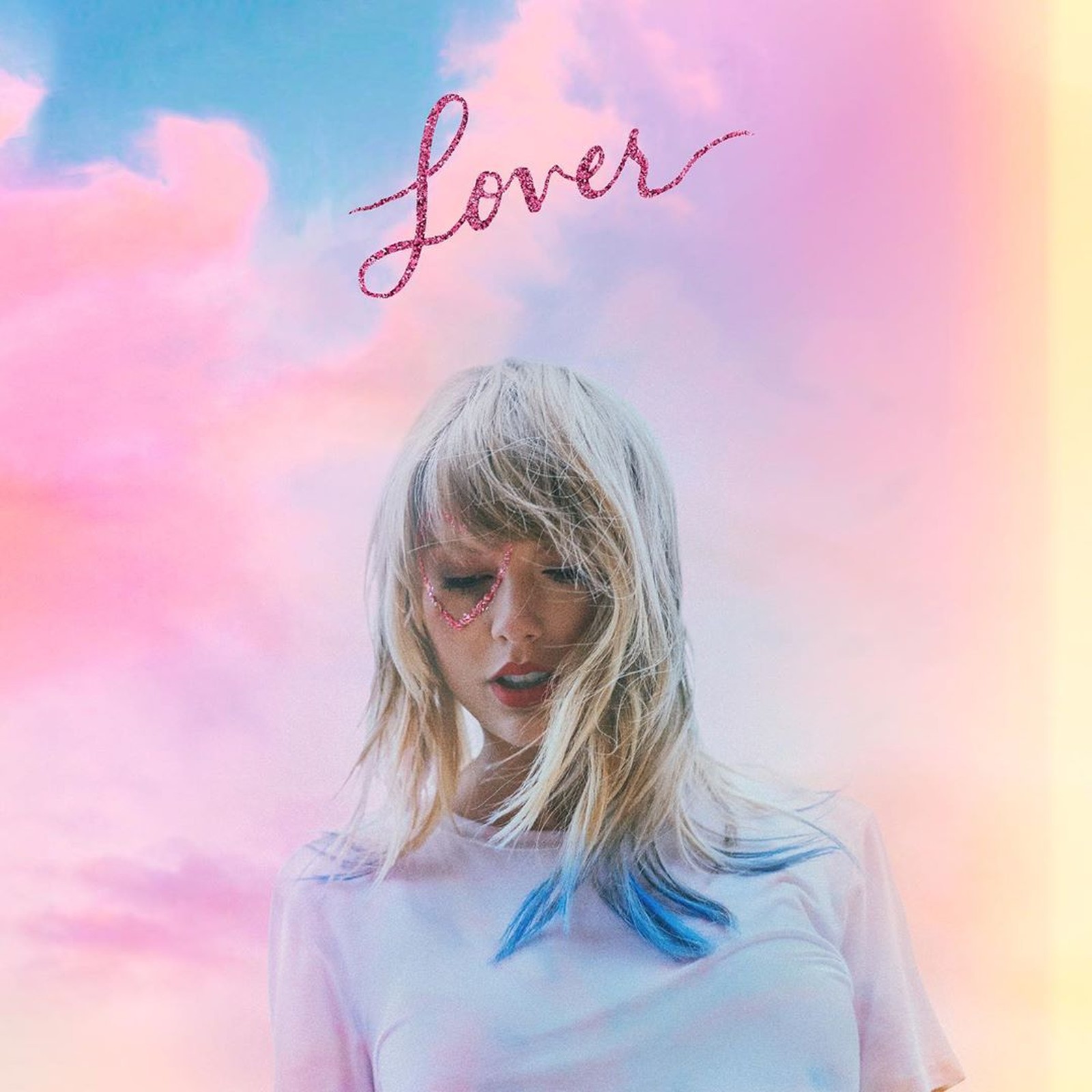
Mitch is convinced that “Lover” is one of Taylor Swift’s best love songs. Is he right or wrong? Please discuss.
Josh: Look, my inner 11th grader will always have a soft spot for “Love Story,” and we’ll still need time so evaluate whether “Lover” will endure as one of her most celebrated love songs alongside a host of other candidates. But the initial signs sure are promising: “Lover” is a very well-crafted and heartfelt single that has been universally applauded by critics. It will likely endure as one of the standout features from the album which shares its name.
Jack: I secretly don’t totally adore the song; I’m glad it exists, I love the music video, and the whole jamboree feels really heartfelt and wonderful, but sonically I’m not completely on this train. So Mitch is probably right and I recognize that I’m probably wrong; nonetheless, I’ll keep skipping it on the album for a while. Maybe I’m just too lonely to connect with it yet.
Francesca: I don’t know if I’m the best person to argue for or against this but I do find “Lover” pleasant to listen to. Although! The opening line, ‘We could leave the Christmas lights up ’til January’, made me go ‘huh?’ Because don’t people leave their decorations up until January anyway? Until like the 5th of January is the norm. If she left them up much longer or if the lines were ‘we could leave the Christmas lights up ’til February/ This is our place, we make the rules’ (which I thought they were at first) then I’d be like ‘WOAH, TAYLOR, NO. But it’s your place your rules do whatever you want….’ But they’re not so those opening lyrics feel really pointless.
Nicole: This is a difficult one to answer, as we’re talking about an incredibly prolific songwriter who made a career basically on writing about love. “Love Story” was incredibly formative for me, 1989 bonus track “Wonderland” is my favourite Taylor Swift song and it’s a gorgeous love song. As is “I Know Places”. “New Year’s Day” is also beautiful and moving, to me a perfect example of how Taylor Swift writes songs like no one else. “Lover” is great and definitely merits inclusion in “Best of Taylor Swift” lists, and the more I listen to it the more I like it. You might be right, you might be wrong, Mitch, I guess we’ll only know once she releases her 10th studio album and all publications compile endless lists on her discography and they reveal where “Lover” ranks among all her other songs in the eyes of the public.
Mitch: I continue to stand by this statement.
Can I go where you go?
Can we always be this close?
Forever and ever
Take me out
And take me home
You’re my, my, my, my…
Lover
The accompanying aesthetic (pastels, tie-dye, innocence…) has played a central role in the presentation of the album/ new Taylor Swift era. How important do you feel this is to Lover’s overall impact?
Josh: It’s important in demonstrating the steps that have been taken since her last release. Lover’s cover features bulging pink clouds behind a colorful and entranced image of Swift. It’s a clear contrast to the unsmiling, black-and-white, tabloid-consumed face which graced cover Reputation, and this contrast is equally well-reflected by the content of both albums.
Melanie: The accompanying aesthetic seems to reflect the tone of the album well — the sound of Swift’s songs on Lover do sound “pastel” in that the overall sound is light and airy, even though some of the songs tackle hardships such as broken hearts and sexism. In terms of innocence, however, I would argue that Swift hasn’t set up an aesthetic of innocence but rather that of awakening, magic, and growth. She has used the butterfly as a consistent symbol for this album which seems to signify her leaving behind the harshness and pouty-ness of reputation and has her moving on into a space of confidence in her sound and understanding of love. Swift is going so far as to collaborating with Stella McCartney to create a clothing line with the same pastel, tie-dye feel, and it appears to really matter to her that these particular bursts of color represent what her album is all about.
Jack: I would actually argue that innocence isn’t a theme here at all; perhaps that connection is made because pastels are (wrongly) associated with femininity and femininity is (wrongly) associated with innocence. Anyone can like pastels, obviously, and this album has more references to sexuality and intoxication than any of her other works. I wouldn’t say anything is inherently innocent about her photos with hearts on them or the use of butterfly imagery. To me the color palette for this album is spot on; the songs radiate pastel energy, and tie dye reflects beautifully how intertwined the colors in this record are.
Francesca: I agree with Jack with the innocence. In the build-up to Lover, I got a sense that it was a theme because of the kitschy sweetness and simple lyrics such as ‘Girl, there ain’t no I in “team” but you know there is a “me”’ (although incidentally the spelling is fun’ part has been removed on the album version) but, while there is a similar simplicity to many of the songs (‘I like shiny things, but I’d marry you with paper rings’) I do feel there’s more to it than that. I think this aesthetic is intended to radiate a clear optimism that contrasts with her last and pastel blends always have a captivatingly dreamy quality. Also tie-dye is super on-trend so all of these things tap into an image that’s easily profitable.
Nicole: I hate her new aesthetic with a passion. Like, really truly despite it and will not be taking further questions at this time otherwise this will become a huge rant about the ugliness and 2010-Instagram-and-Tumblr-girl of it all. She always has a new look for a new album, 1989 was the most tasteful one by far in my opinion. I like that she cares about aesthetics so much because they really do become visual representations of her music – something increasingly important as people consume visuals all day every day – but I don’t think the ones for Lover were well-executed or polished at all. It’s way too much, too on the nose, too much going on. Instantly people know she’s happier and lighter than she was before (and in love, because the woman is painting glitter hearts around her eyes), but this doesn’t mean it looks good.

Now on her seventh studio album, Taylor Swift has had her share of hits and few, if any, misses. Has she hit a new peak in Lover, or is the sparkle of 1989 and reputation starting to fade into something past its prime?
Josh: A seventh strong album from any artist is a rarity; to have maintained one’s status as a worldwide pop icon after all that output is especially remarkable. Swift has achieved this in large part by continuing to take her craft seriously and releasing records in which her intelligent penmanship and production choices are always clear for listeners to observe. Lover does just fine in all of those regards.
Melanie: It is hard to believe that this is Swift’s seventh album, and for it to still have such impact should not be taken for granted. I think Swift’s embracing of new sounds boded well for 1989 and reputation to show her stepping out of her comfort zone as an artist, but her best songs tend to be the ones where she has clearly stuck to her, individual sound which is truly a crossover of country-inspired, acoustic, and the lighter side of pop. Lover embraces that sound on every song and as an album, and it seems to be what those of us who have been fans for 10 years now, truly appreciate. She doesn’t have to try so hard to be different, when she can write such a solid set of love songs.
Jack: I’ll be really curious to see how this record sells now that she’s not a blank canvas people can project their own beliefs onto; previously conservatives could imagine she was one of them, progressives could imagine she was liberal privately, and everyone could enjoy her music because she had nothing politically for them to disagree with. Now that she’s an out and about democrat it’ll be interesting to see how audiences react to her; that said, I wouldn’t be too surprised if this is her best selling record yet.
Madison: As Melanie and Josh pointed out, this is her seventh studio album which is an incredible feat for any artist. I grew up listening to Swift so maybe I’m a little biased, but I think she’ll undoubtedly stay relevant into the next era and beyond. I think the fact she always sings about love has helped propel her into a stardom that sticks. Love is a feeling everyone either has experienced or is seeking to experience. Love connects us, and Swift knows that because it has arguably been one of the driving forces of her life. As a result, we have an artist has created and will continue to create music that speaks to nearly everyone.
Alicia: For me, 1989 was her peak, and the bar was set very high. That album arguably established her as one of the biggest artists in the world, and something with that power is hard to top. I also don’t think Lover is anything special. It’s just another pop album, and she now has some decent competition out there; she is gonna have to work harder if she wants to keep her pop princess crown.
Francesca: She hasn’t reached a peak with this album but I don’t think it will be considered fading either. It’s just kind of consistently present because Taylor Swift is such a powerful force in pop culture. I don’t know. For me, it’s hard to judge and time will give the clearest answer.
Nicole: Well, to me it’s difficult to care about this album if sonically I can’t spot any development. Nothing done on Lover is particularly new, it’s a very safe album both in music and in theme, so to me this is an indicator that things might be plateauing for Taylor Swift. I’m weary to say she’s fading because I just think she’s an incredible talent and I struggle with believing she’ll ever fade because of just how good and huge she is. I do think, though, that if what comes after Lover also plays it safe, she’s in dangerous territory. There are so many incredible artists and bands doing interesting things, in pop music and otherwise, that I think she can be eclipsed if she doesn’t reinvent herself and bring something truly innovative to the table.
James: This was a great return to form. While I really enjoyed reputation, it wasn’t as good as 1989 on paper. Lover was the next logical step for Swift, and it does mark a new peak for her.
— — — —

Connect to Taylor Swift on
Facebook, Twitter, Instagram
Discover new music on Atwood Magazine
? © Taylor Swift
Lover
an album by Taylor Swift

